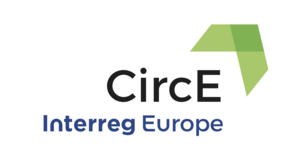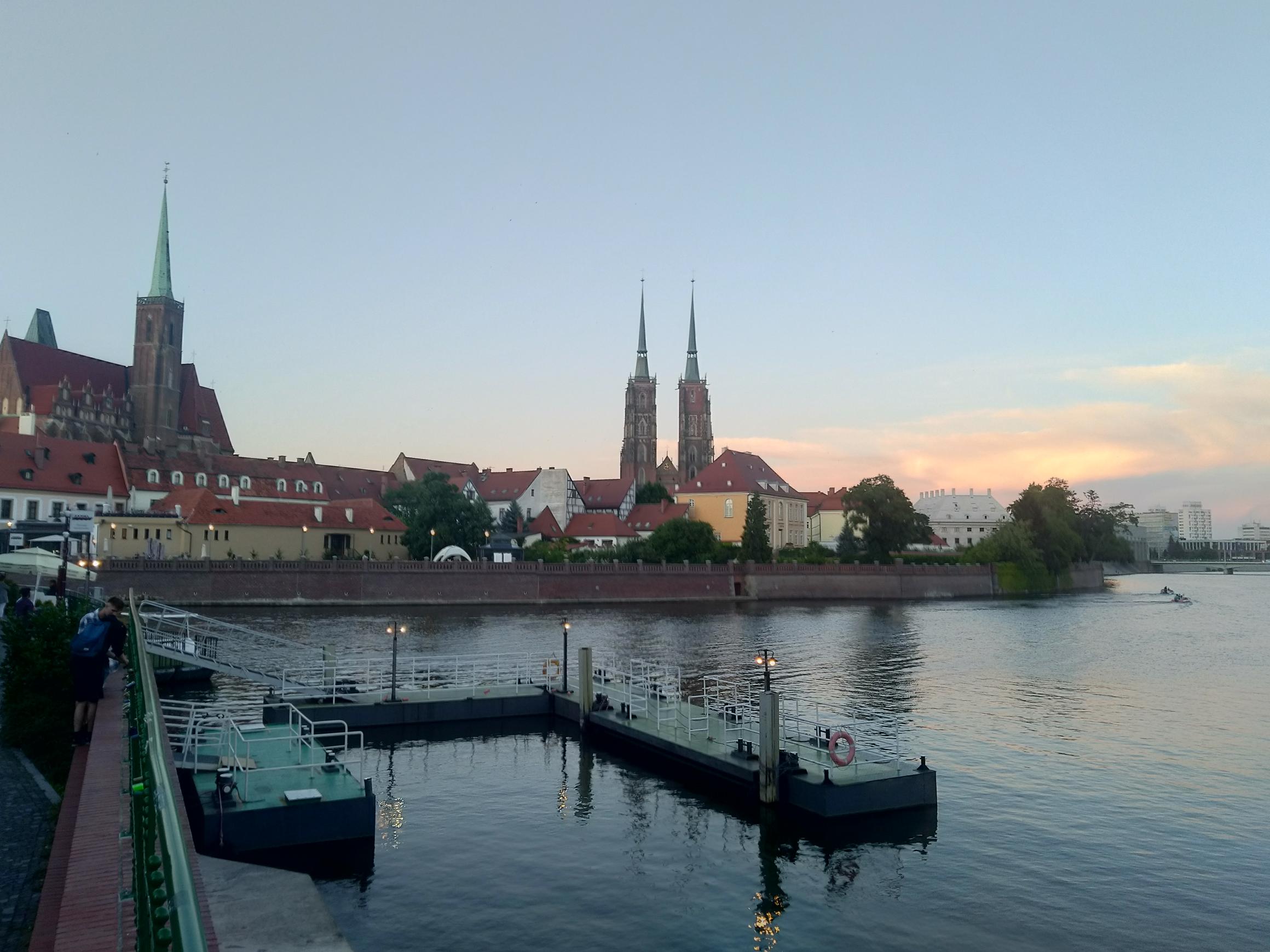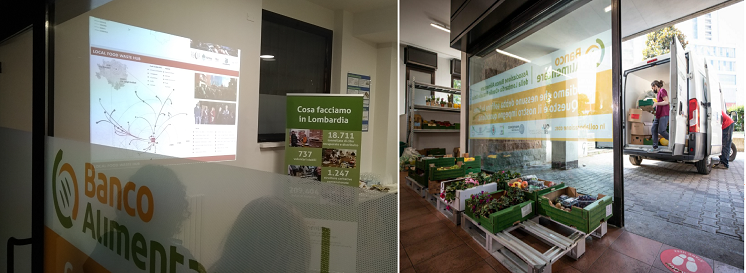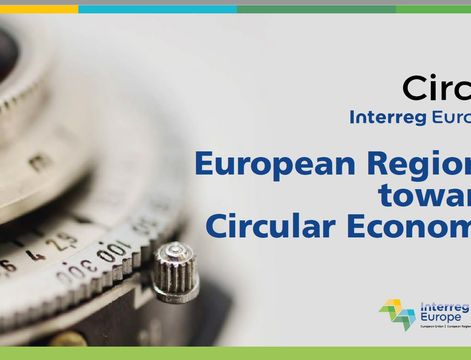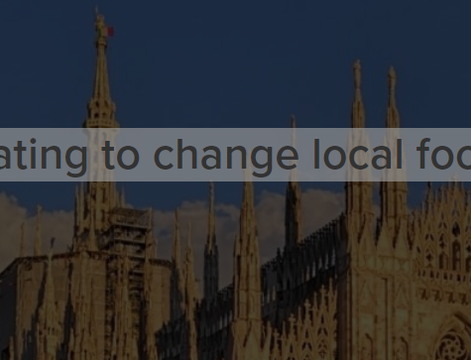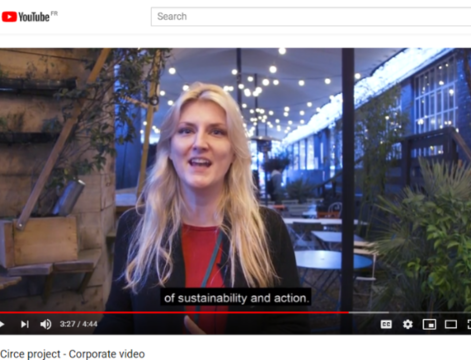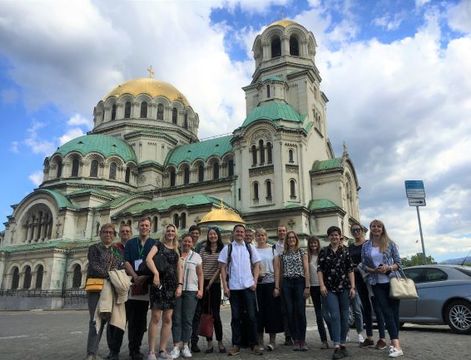The Government of Catalonia spread the results of the Interreg Europe CircE project and the rationale of the Action Plan in front of an audience of more than 80 stakeholders, mainly representatives of the textile and beverage sectors, local policy makers and research and innovation institutions.
The dissemination event was held on March 1st, 2019, at the headquarters of the Ministry of Territory and Sustainability from the Government of Catalonia. The Catalan Secretary of Environment and Sustainability, Marta Subirà, opened the session presenting the results of the Interreg Europe CircE “European regions toward circular economy” project, the outcome of two years’ work, intensively shared with relevant stakeholders of the region.
The work in Catalonia has focused on identifying opportunities, barriers and good practices in the textile and beverages sectors, which have always played a strategic role within Catalan industry. During her speech, the Secretary pointed out that "these two economic sectors have managed to innovate to maintain their market share and become more sustainable". She has also thanked the more than fifty people linked to associations, companies and research and technology centres for their help in carrying out this analysis.
The analysis has led to the emergence of several opportunities in each sector, which are the basis of the action plan. The Secretary went on explaining that the final document of the CircE Action Plan is expected to be released in June this year and the expected deadline for implementing all the included measures is mid-2021.
15 opportunities for becoming more circular
The study has identified 15 opportunities for improvement in the textile and beverages sectors in Catalonia, which will help them to boost and achieve a circular economy model.
Seven circular opportunities have been identified for the textile industry including:
• Increase the capacity of post-consumer textile collection
• Increase the reciclability, recycling and the use of recycled fibres, threads and fabrics
• Scale up the creation of new business models
• Intensify the search of alternatives to prevent the effects of microfibre release and other substances of concern during the product lifecycle
• Increase water and energy savings and efficiency used during the production process
• Explore new ways of pre consumer textile waste upcycling for industrial uses
• Ecodesign for durability
Eight circular opportunities have been distinguished for the beverage sector :
• Preventing food waste along the value chain
• Minimising material use for beverage distribution
• Increase the reuse of glass packaging
• Increase water savings and water efficiency during production
• Scaling the creation of new valuable industry products from by-products
• Use of recycled packaging materials
• Use of biobased and/or compostable materials for plastic packaging where beneficial
• Increase the implementation of smart packaging solutions
Stakeholder round-table on the CircE Action Plan in Catalonia
A round-table was organized with the aim to show stakeholder support to future actions that will boost the CircE opportunities and overcome the identified barriers. Stakeholders were coming from both sectors: the beverage company Damm, the textile companies association Texfor, the waste managers’ cluster Gremi de Recuperadors and two research and technological centers, Eurecat and Leitat. The main aspects, which arose from the debate, to be taken into account to be successful in the implementation of the CircE action plan of Catalonia were the following:
• Involvement of the whole value chain to transform linear models
• Boost research and innovation, mainly through collaborative challenge and solutions identification
• Voluntary agreements to work collaborative and to face costs
• Digitalization as an enabler tool
• Consumer awareness
• Inspiration and collaboration with other sectors
• Collaboration among clusters
Ellen MacArthur Foundation contribution to the dissemination event
Julia Vol, a representative of the Ellen MacArthur Foundation, participated via skype to the event. She presented to the audience the progress made in the transition towards a circular economy at international level. The following initiatives and reports of the Foundation were highlighted by her:
o Make fashion circular
o Global Commitment to eliminate plastic pollution at its source
o Informe: Artificial Intelligence and the Circular Economy (2019)
o Informe: Cities and Circular Economy for Food


